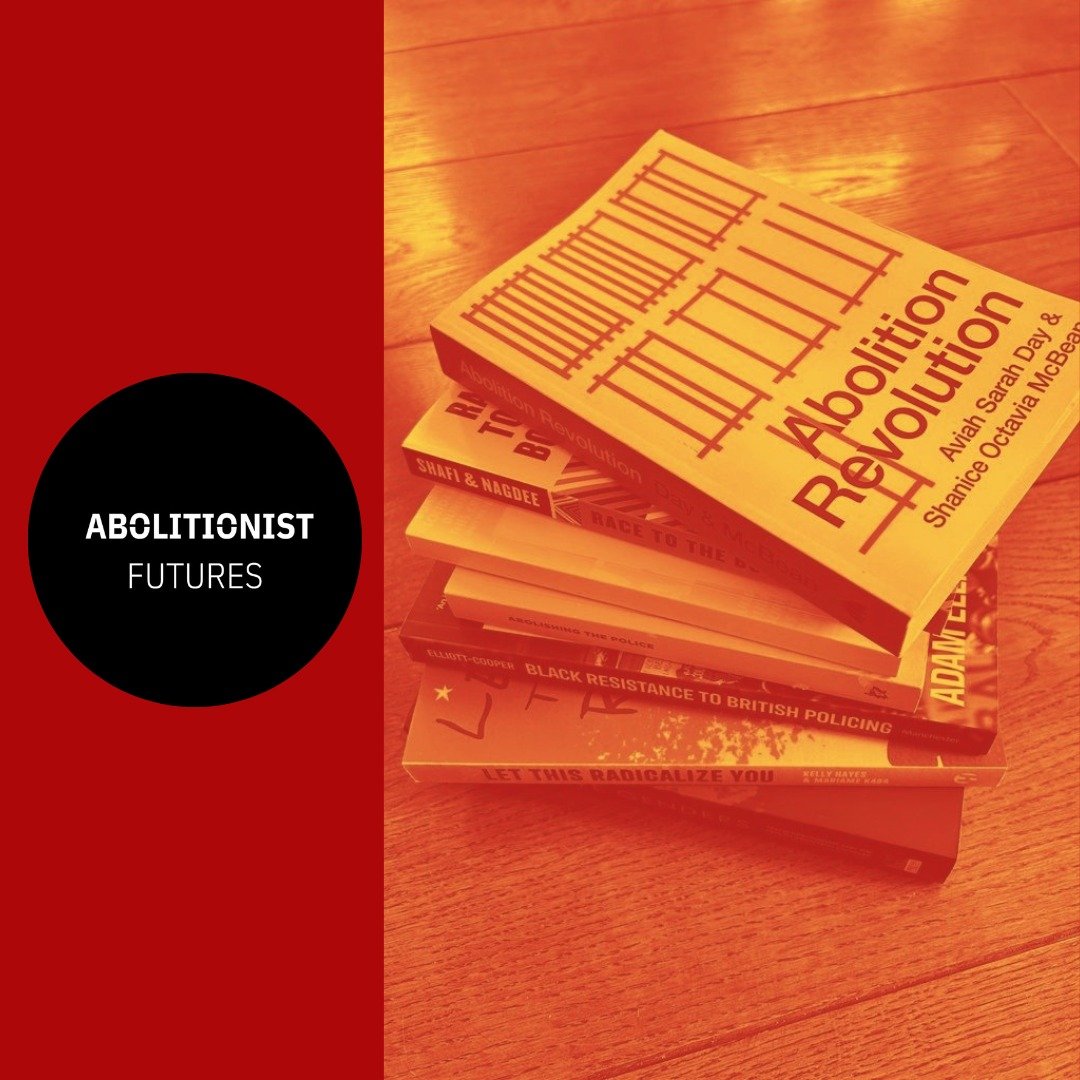News and Comment
Topic
- #KILLTHEBILL
- #killthebill
- 1972
- Abolition
- Abolition & drugs
- Abolition Archive
- Abolition Revolution
- Abolition in the UK
- Abolitionist Digest
- Abolitionist Feminism
- Abolitionist Futures Reading List
- Anthony Lemard
- Anthony Mahoney
- Anti Colonial
- Anti Fascism
- Archives
- Art & Abolition
- Aviah Sarah Day
- Ball & Chain award
- Ball and Chain Award
- Barlinnie
- Barry Prosser
- Beware the reformers
- Black Lives Matter
- Boo
- Book Review
- Borders
- Brighton Alternatives to Prison
- Care
- Child Abuse
- Cleveland
- Comment
- Cops in Culture
- Creative Methods
- Crime Prevention
- Criminal Women
- Criminalisation
- Cynthia Jarrett
- Dangerousness
- Deaths in Custody
- Decriminalised Futures
- Defund the police
- Devolution
- Disability Justice
- Douglas Kepper
- End of RAP
- Everyday Abolition
- Families Outside in Glasgow
- Feminist Criminology
- Follow the money
A Cry for Life and Political Care; From Beneath the Ashes Fallen Upon Us
Neda Naji, a left feminist writes about the ongoing repression in Iran and argues for an abolitionist response grounded in care.
✨Reading and Practising Abolition✨
Join us for this pilot project on creative methods and abolitionist scholarship in collaboration with the Centre for Communities and Social Justice (University of Greenwich).
Whipping Up Fear
So when anti-trans narratives talk about the women’s being made unsafe, they mean it is being made unsafe for a particular set of women who are worthy of protection: those who are in close proximity with the idealised form of woman.
Gender and ‘Historical’ Injustice Inquiries: Irish Reflections.
Participants in Irish inquiries have not been silenced or ignored in any simple sense. Instead, they have been drawn into inquiry processes which offer them some public recognition, but carefully restrict their political agency.
Domestic work, care, and gender-based violence: Towards a non-carceral approach to migrant domestic workers’ rights
The carceral approach put forward by the ‘modern-day slavery industrial complex’ focuses on punishing the perpetrator rather than being centred on what migrant domestic workers actually want and need for a life of safety and dignity: the right to work and settle in the UK
Sex work and the abolition of capitalism
Sex workers want real, viable economic alternatives, not more policing. Feminists of colour have long criticized radical feminists (and broader anti-violence work) for its focus on interpersonal violence at the cost of institutional violence.
A Just Hearing for Survivors: Feminist Activism and Political Listening
Focusing political attention on the politics of listening helps to avoid an individualist politics that leaves survivors isolated and vulnerable in an ‘economy of believability’ that is stacked against them, and leaves them open to excessive scrutiny, including from feminists.
We Keep Us Safe: Lessons from Whitechapel’s Defence
Last Saturday’s mobilisation in East London showed that real safety and power come not from police or authorities, but from communities organising from within. When neighbors, youth groups, faith networks, and local collectives stand together in solidarity, they create a culture of collective self-defence that builds lasting resilience. The lesson is clear: anti-fascism is most effective when it is proactive, rooted in everyday community life, and linked to political education, solidarity, and shared visions of liberation. True protection comes from strengthening the networks and relationships that bind communities, not relying on the police to keep them safe.
Resisting Cyber-located Sexual Violence Through Irish Feminisms
As with contact sexual violence, CLSV is not about sex. It is reflective of, and reinforces, gender inequality, specifically the justification of power imbalances and the normalisation of the subordination of women, girls, and other marginalised genders.
Against Rights: Critiquing the contemporary neoliberal management of “difficult” mental health
We critique contemporary management of “difficult” mental health, offering a discussion of Community Treatment Orders (CTOs), the limitations of rights advocacy, and offer some alternative avenues for organizing against the neoliberal and carceral management of “difficult” mental health.
Reimagining prevention: centring care in youth support
Community-based services can be a crucial support system for marginalised young people, particularly when schools fail to meet their needs. Yet these same young people are also among those most frequently targeted or harmed by police or other state services.
Suing for sexual violence
In spite of tort law’s ‘architecture of bias’, some feminist scholars and activists have argued that there is potential for tort law to be expanded to encompass and redress harms which more often and more greatly affect women and other marginalised people. While this can be important for some survivors to meet material needs and provide recognition for a wrong and harm, Martha Chamallas argues that it is not only a matter of individual compensation. It is connected to addressing systemic injustices because harm and violence are not equally inflicted and experienced, varying with intersecting forms of oppression.
Contesting the nexus between law, rape, and property
the legal and cultural obsession with affirmative consent evidenced in popular feminism, media, and mandatory university trainings cruelly reifies victims of sexual violence as abstract legal subjects, capable of protecting themselves through savvy risk assessment and contractual relations. Indeed, the privileging of consent as a marker of acceptable sexual relations has been thoroughly critiqued by feminist, queer, and liberal legal scholars.
The Abolitionist 1979 - 1987
As we republish the final edition of The Abolitionist we reflect on the twenty-two editions and consider what we can learn from the struggles of the 1980s
The Abolitionist No 23 (1987)
Read a full digital copy of this edition of Radical Alternative to Prison’s journal “The Abolitionist” (1987) No. 23














